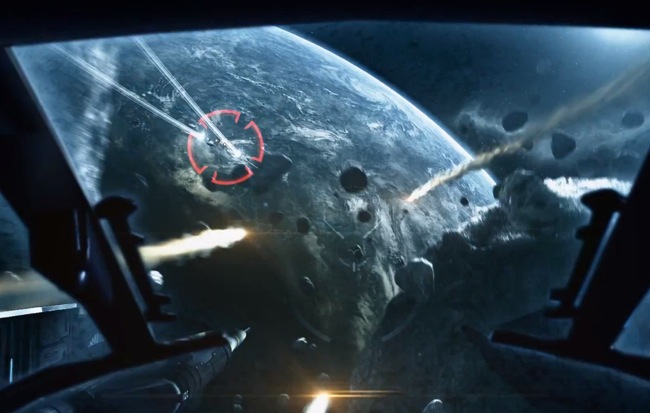Disclosure: The organizers of the Slush game conference paid my way Iceland, where I was the master of ceremonies. Our coverage remains objective.
The studio behind Eve Online is making one of the showcase pieces for virtual reality headsets right now, but even the guy in charge of that company is doubtful that VR will take off over the next year or so.
CCP Games chief executive officer Hilmar Veigar Pétursson discussed the future of gaming and VR during a panel at the SlushPlay conference in Reykjavik, Iceland, earlier this week. He explained that he bases his hesitation regarding VR on how long it takes any industry-changing technology to truly ramp up. He’s excited by the new tech, which is obvious by the investment his team is making in the Eve: Valkyrie VR dogfighting game, but he just isn’t betting on it changing the world in 2015 or even 2016.
“People tend to overestimate what we will accomplish in five years,” said Pétursson. “But they tend to underestimate where we’ll be in 10 years.”
The Icelandic executive pointed to mobile gaming and 3D graphics cards as examples of technologies that changed everything but only after several years.
“3D cards took six years to catch on, and phones took 10 years,” said Pétursson. “I used to go to GDC, and they would say that mobile phones are the future, and it was nothing. Ringtones were a bigger business than games back then.”
The CCP boss said that even when the iPhone came out in 2007, it didn’t instantly create billion-dollar games. First, Angry Birds debuted — and that wasn’t until 2009. That game from Rovio proved the market was real, but the true megahits that we think of these days, releases like Clash of Clans and Candy Crush Saga that make more than $1 billion annually, didn’t come out until 2012. So that was all just five years after the iPhone alone.
“And we sit here and say VR is going to be big next year,” said Pétursson. “And it’s not going to be big.”
Clearly, Pétursson is expecting VR to have the potential to grow into a mobile-like market in the future, but it won’t support a massive industry the way mobile and PC gaming does right now for a few years. That will take patience — but patience is something that Pétursson seems to understand.
VentureBeat's mission is to be a digital town square for technical decision-makers to gain knowledge about transformative enterprise technology and transact. Learn More

